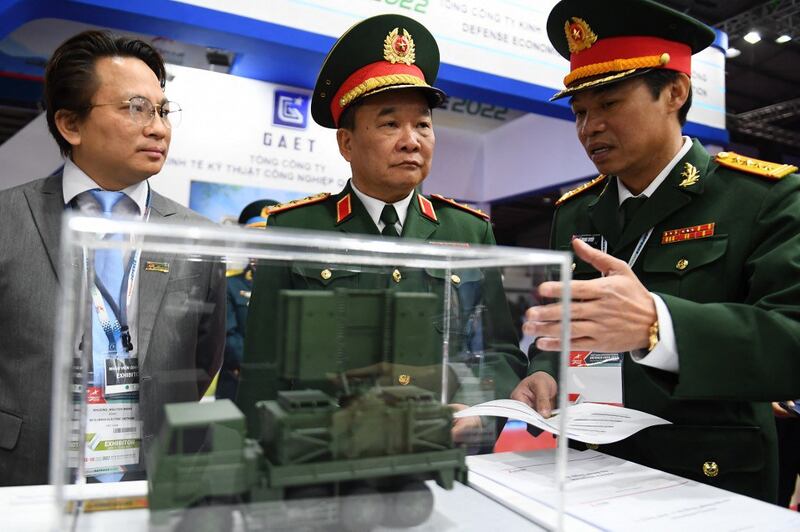Vietnam is considering a law on defense and security industries that may pave the way for foreign companies to tap into the country’s burgeoning sector.
Up to now, only military-owned domestic companies are allowed to invest in the multi-billion-dollar industry that has witnessed rapid growth in recent years.
The Ministry of National Defense has "instructed relevant organizations to finalize the proposal for a bill on Defense and Security Industries and Industrial Mobilization," state media quoted Senior Lt. Gen. Nguyen Tan Cuong, chief of the general staff and vice minister, as saying recently.
The bill will be passed on to the government to include in the agenda of the Vietnamese National Assembly, or parliament, for further discussion and approval, Gen. Cuong said in an interview at the weekend.
Officials and analysts have said that such a law, which offers a clearer legal framework and requirements, is urgently needed to boost the domestic defense sector.
Maj. Gen. Luong Thanh Chuong, vice chairman of the General Department of Defense Industry, told the Quan Doi Nhan Dan (People's Army) newspaper, that as Vietnam pursues a strategy to promote the "dual use" of defense technologies and equipment for both military and civilian purposes, businesses and private organizations are encouraged to invest in the defense industry.
The newspaper, which serves as the mouthpiece for the defense ministry, quoted unnamed Vietnamese arms manufacturers as saying that “all economic entities, including foreign-invested companies where foreign investors do not hold the controlling stake, should be allowed to take part” in the industry.

According to the Stockholm International Peace Research Institute, which tracks global military transfers, Vietnam's military spending increased nearly 700% to U.S.$5.5 billion between 2003 and 2018.
GlobalData, a London-based analytics and consulting company, reported that Vietnam's defense expenditure is estimated at U.S.$5.8 billion in 2022 and projected to grow at an annual rate of 8.5% to U.S.$8.5 billion by 2027, "mainly due to the country's plan to increase its defense capabilities to counter Chinese aggression in the South China Sea."
Vietnamese defense officials are unavailable for media requests and mostly communicate via pre-vetted interviews in the ministry’s publications.
Earliest approval
The Vietnamese defense ministry held the first international defense trade fair in December in order to give the arms sector a boost and at the same time diversify its weapons procurement.
Hanoi buys weapons and military equipment from 26 countries but Russia, its historical and traditional ally and also one of Vietnam’s four comprehensive strategic partners, remains by far the largest provider.
Domestic companies now make a number of products including infantry rifles and ammunition, logistics equipment, radars, drones and equipment for cyber defense operations.
A part of Z111, a Vietnamese leading arms factory, was developed with the technology from an Israeli firearms manufacturer, a model more companies could follow.
With a greater investment and technology transfer, the Vietnamese defense industry “could speed up the modernization process and become independent, as well as self-reliant,” said Maj. Gen. Doan Hong Minh, former chief adviser to the minister of defense on high tech weapons development.
"In order to modernize the industry it is essential to modernize the legal environment," Minh told the Defense TV Channel, adding that he hoped the law on defense and security industries would be given the green light by the current parliament.
The 15th National Assembly of Vietnam (2021-2026) is expected to discuss a draft bill at its 6th session later this year and, if satisfactory, sign it into law at the 7th session in May, 2024.
